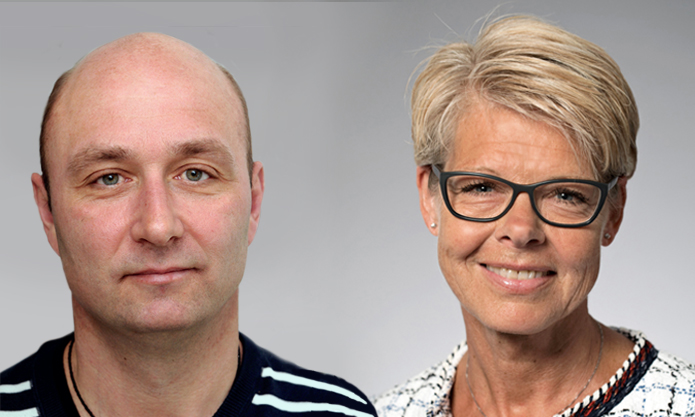Why do some bacterial infections persist whereas others do not? And why do some influenza viruses from pigs infect people, whereas others do not? Two research projects awarded grants under the Novo Nordisk Foundation’s 2019 Challenge Programme will try to answer these and other questions.
The Foundation has awarded DKK 120 million for two research projects that focus on emerging infectious diseases. One project will investigate persistent bacterial infections and the other the transmission of influenza A between pigs and people.
“We have decided to support two projects, each of which seeks answers to how we develop new methods to investigate and treat infectious diseases in the future. Both projects will focus on obtaining new knowledge about why and how the respective diseases develop and will work towards improving the opportunities for diagnosis and treatment,” says Niels-Henrik von Holstein-Rathlou, Head of Biomedicine and Health Research, Novo Nordisk Foundation.
Novel use of models to ensure better treatment options
The Foundation has awarded one grant to Helle Krogh Johansen, Clinical Professor, Department of Clinical Microbiology, Rigshospitalet, Copenhagen, who is receiving DKK 60 million for the project Persistent Bacterial Infections (PERFECTION). The research will examine very basic questions related to persistent bacterial infections: why do some infections persist, what characterizes these infections and how can treatment be improved? An example of a persistent bacterial infection is a leg ulcer as a complication of type 2 diabetes that becomes permanent despite appropriate antibiotic therapy.
To answer these questions, the researchers will use organoids, which are 3D models for investigating the interaction between infectious bacteria and cells in their relevant environment, either tissues or organs. The use of organoids is not new, but Helle Krogh Johansen will use the models in a novel way, turning them inside out to give the researchers better access and more time to study the infection. The new knowledge the researchers obtain can be translated into new clinical analyses and studies that can be used to more accurately improve the diagnosis and treatment strategies of the people with persistent infections. This aspect of the research is very important for Helle Krogh Johansen.
“My daily clinical experience as a chief physician at Rigshospitalet shows me that persistent bacterial infections are a significant problem for patients. Realizing this research project is therefore very important to me, since it provides the opportunity to create new knowledge on why some bacterial infections persist. I hope that this will mean that we can start with appropriate treatment sooner and avoid patients getting persistent infections and thus spare them unnecessary discomfort,” says Helle Krogh Johansen.
Using molecular markers to prevent an influenza outbreak from developing into an epidemic
The Foundation has awarded the second grant to Lars Erik Larsen, Professor, Department of Veterinary and Animal Science, University of Copenhagen. He is receiving DKK 59,935,340 for the project Viral and Host Factors of Zoonotic and Pandemic Influenza A Viruses (FluZooMark).
Lars Erik Larsen’s project will bring together researchers who focus on virology and immunology in both animals and humans. The researchers will work together to identify markers of human and swine influenza viruses to determine why some influenza viruses spill over from swine to humans. According to Lars Erik Larsen, this translational combination is a new approach to the field because it enables the examination of both the characteristics of influenza A and the risk of infection crossing the barrier between animals and humans (zoonotic risk).
“Currently, we have no research-validated markers that determine when a given influenza A virus mayl be transmitted from pigs to people. The overall focus of the project is to identify these molecular markers as tools to prevent future influenza epidemics. Validating one or more markers will enable us, for example, to produce vaccines in advance so that we can prevent an influenza outbreak from developing into an epidemic,” explains Lars Erik Larsen.
DKK 300 million allocated across three themes
The Foundation has awarded DKK 300 million for research through the 2019 Challenge Programme. In addition to the two grants in Emerging Infectious Diseases, the Foundation has awarded DKK 120 million for research in Modern Plant Science – Towards a Sustainable World and DKK 60 million for research in How Dietary Factors Affect the Human Microbiome.
Every year, the Foundation’s Challenge Programme awards more than DKK 100 million for research projects on specific challenges within annually selected research themes. The Foundation has just opened for applications for the 2020 Challenge Programme, with up to DKK 480 million being awarded allocated across the four research themes. Read more about the themes and the application process here.
Further information
Helle Krogh Johansen, Professor, Rigshospitalet, phone: +45 3122 8406, [email protected] or [email protected]
Lars Erik Larsen, Professor, University of Copenhagen, phone: +45 4099 8434, [email protected]
Christian Mostrup Scheel, Senior Press Officer, Novo Nordisk Fonden, phone: +45 3067 4805, [email protected]








